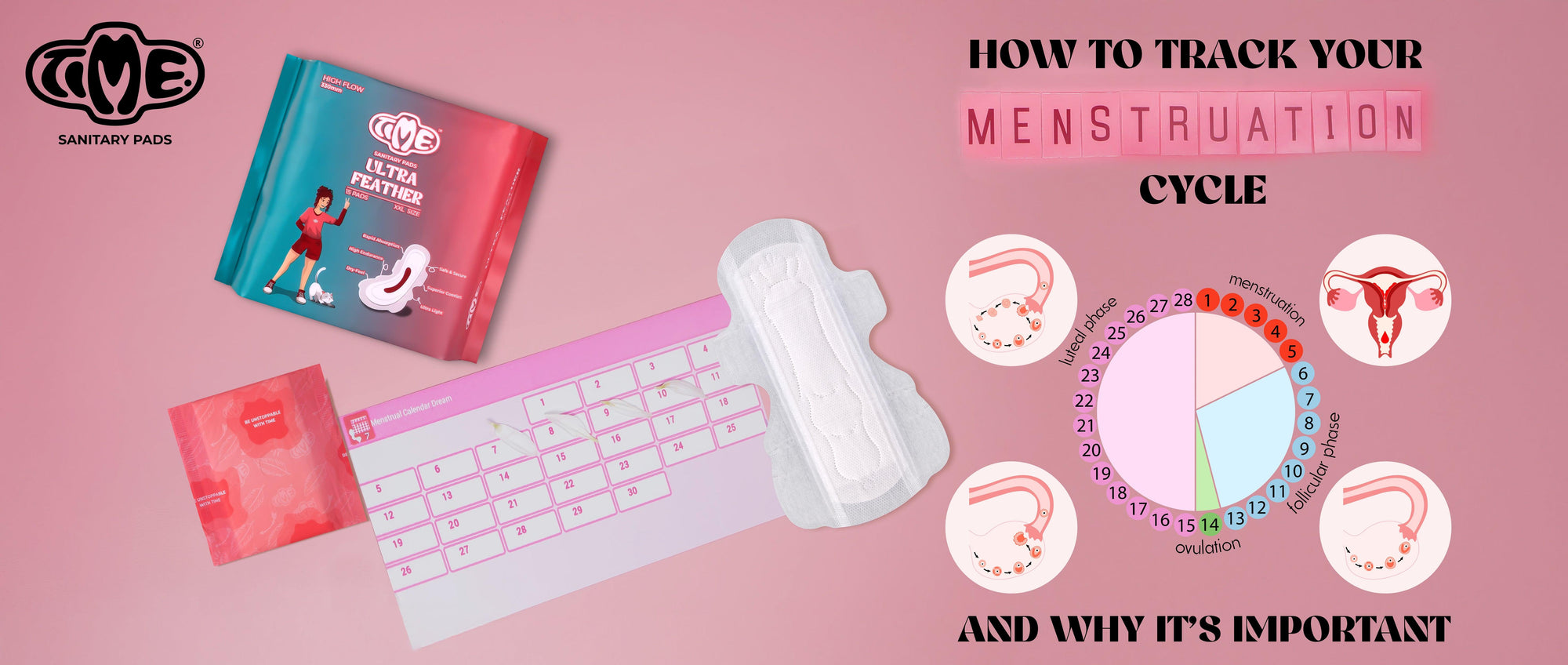Tracking your menstrual cycle isn’t just about knowing when your period will start. It’s about understanding your body better, predicting your mood swings, and making informed decisions about your health. Menstrual cycle tracking provides a wealth of knowledge, empowering women to take control of their well-being. Let’s explore how to track your period and why it’s so important.
What Is Menstrual Cycle Tracking?
Menstrual cycle tracking involves recording the start and end dates of your period, as well as other symptoms or changes in your body throughout the cycle. It’s not just about marking the days of bleeding. Tracking can include monitoring physical symptoms like cramps, headaches, and changes in mood, as well as fertility signs like ovulation. You can use a paper calendar, apps, or trackers designed specifically for this purpose. The more details you record, the clearer your cycle pattern becomes.
Why Track Your Menstrual Cycle?
To understand the importance of tracking your menstrual cycle, consider these key points:
Stay Prepared for Your Period
No more surprise visits! Tracking your menstrual cycle helps you predict when your next period will arrive. This simple practice can help you stay prepared with sanitary products like pads or tampons and avoid any unexpected interruptions in your daily routine.
Gain Insights into Your Health
Your menstrual cycle reflects your overall health. A regular cycle indicates hormonal balance, while irregularities or sudden changes might suggest underlying health issues, like thyroid problems or polycystic ovary syndrome (PCOS). By tracking your cycle, you can spot changes early and discuss them with a healthcare provider.
Better Understanding of Your Symptoms
Do you feel more tired, bloated, or moody around a certain time of the month? Tracking these symptoms can help you understand patterns in your body. When you know what to expect, you can take steps to manage these symptoms, whether that means adjusting your diet, exercising more, or using heating pads for cramps.
Fertility Awareness
Whether you’re trying to conceive or avoid pregnancy, tracking your menstrual cycle is an essential part of understanding your fertility window. By knowing when you ovulate, you can better time intercourse for conception or use other methods to avoid pregnancy.
Better Emotional Well-being
Hormonal fluctuations can lead to mood swings or irritability during certain phases of your cycle, especially in the lead-up to your period (PMS). By tracking your emotions, you can predict mood swings and develop strategies for coping, such as self-care routines, relaxation techniques, or adjusting your workload during high-stress times.
How to Track Your Menstrual Cycle
There are various methods to track your cycle, but the key is consistency. Here are some easy steps:
Start with a Calendar or App
Begin by marking the first day of your menstrual cycle on a calendar or period-tracking app. Apps like Clue, Flo, and Glow can provide more in-depth insights by letting you log symptoms and track your ovulation window. You can also use a physical calendar to mark the start and end of your period each month.
Record Your Symptoms
Besides marking the first day of your period, also note symptoms such as cramps, headaches, bloating, and mood swings. Over time, you’ll see patterns that can help you predict when these symptoms will occur.
Track Your Ovulation
If you’re trying to conceive or avoid pregnancy, knowing when you ovulate is crucial. Apps often provide ovulation predictions, or you can track other signs of ovulation like changes in cervical mucus or body temperature.
Be Consistent
The more consistent you are with tracking, the more useful the data will be. Try to log every detail, even small ones, such as changes in appetite or energy levels. Over time, you’ll start to notice trends, and these insights can help you understand your cycle better.
Conclusion:
Tracking your menstrual cycle is more than just a way to predict when your period will arrive. It’s a powerful tool to understand your body, improve your health, and stay both emotionally and physically prepared for everything your cycle brings. Whether you’re using an app, a paper calendar, or a fitness tracker, tracking your cycle offers valuable insights into your overall well-being.
By staying on top of your cycle, you can take control of your health, manage symptoms more effectively, and ensure you're always prepared with the right period pad for comfort and protection. Take a few minutes each day to track your cycle and embrace the power of understanding your body’s natural rhythm.



